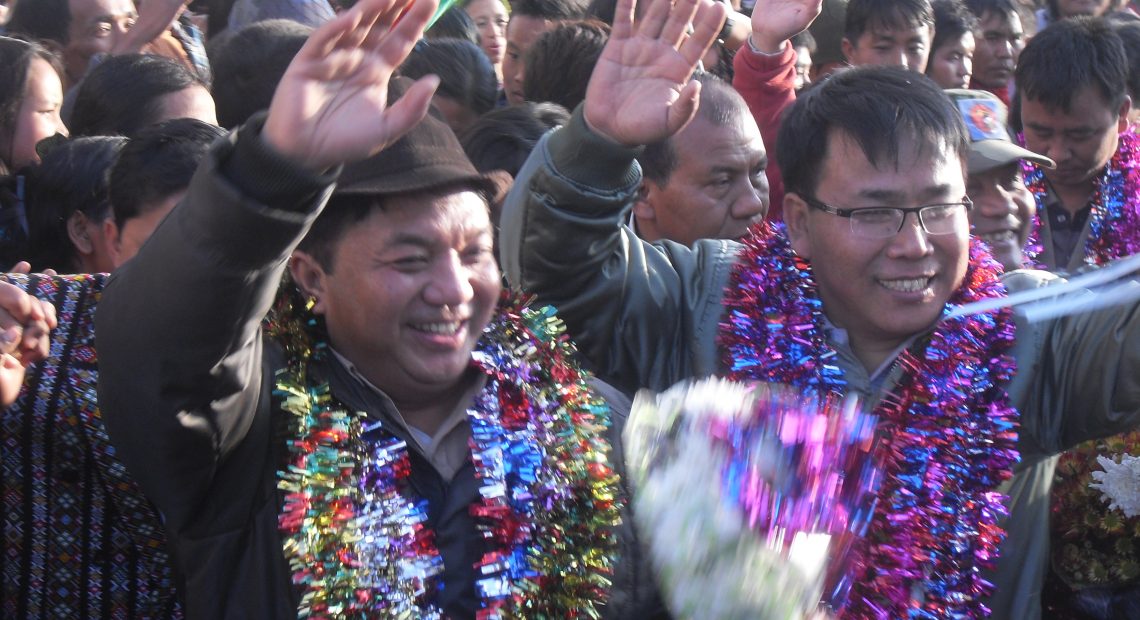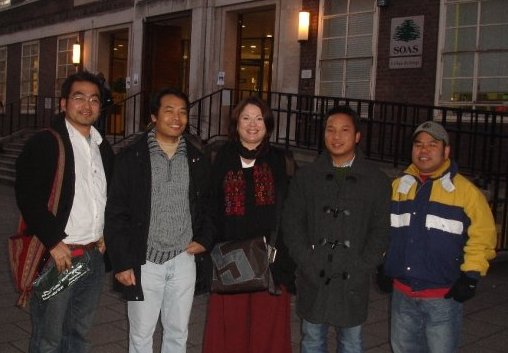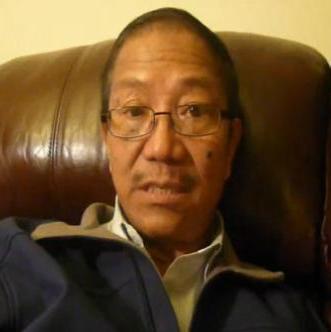Ceasefire is Not Surrender: Interview with CNF Negotiation Team Leader

13 January 2012: Dr. Sui Khar is leader of the Chin National Front’s negotiating team, which recently signed a 9-point ceasefire agreement with the Chin State Government, which effectively ended 23 years of fighting between the Burmese Army and the Chin National Army. In this exclusive interview with Chinland Guardian, Dr. Sui Khar explains about the peace process and details of their recent discussions in Hakha.
Chinland Guardian: Thousands of people came to greet the CNF delegation in all the towns and villages you passed through. Did you anticipate this? And what was your reaction and why do you think so many Chin people came out to cheer the delegation?
Dr. Sui Khar: We never expected that we would receive such a warm welcome, or even dared to daydream about it. We were so reinvigorated by the warm reception. We can’t say enough to express our gratitude to the Chin people. It wasn’t just us; the government side was equally surprised. Firstly, by coming out in the thousands to greet us the public wanted to show their support to the CNF. Secondly, people really want to see durable and just peace in the Union.
Chinland Guardian: The CNF has previously held talks with then SPDC without any concrete agreement. Can you explain to our readers why after 23 years, the CNF now chose to sign the cease-fire agreement? What makes it different this time?
Dr. Sui Khar: There has been communication between the CNF and the then State Law and Order Restoration Council/State Peace and Development Council for a ceasefire since 1994. We held one round of talks with them in 2007. We couldn’t sign a ceasefire agreement then because the policy then was to “Exchange arms for peace.” We accepted the ceasefire agreement this time around because it’s not a ceasefire for the sake of a ceasefire, but it includes the agreement to hold a political dialogue. The government side also agreed to our proposal for a framework for political dialogue.
Chinland Guardian: Some of the demands from the CNF side such as the recognition of CNF operational bases in Paletwa and Tedim Township, and the opening of additional Liaison Offices in Tedim and Matupi Townships, were left for further consideration from the government side. Do you think you got a good deal?
Dr. Sui Khar: During our discussion on this subject, Minister Aung Min promised us that it will be taken care of within two weeks. But they actually approved those demands within two days. While we were staying in Thantlang, on January 9, the State Government called us on the telephone and informed us that those demands had been approved. They said that an official approval letter would be sent soon.
Chinland Guardian: Many people are wondering as to the reason for opening up Liaison Office in Thantlang, instead of the capital Hakha? Can you please explain to us why?
Dr. Sui Khar: The proposal to open up a Liaison Office in Thantlang actually came from the government side. The reason we also agreed to this proposal was that Thantlang happens to be a more strategic centre for us in terms of communication. The location would allow us to function more freely. Moreover, we consider Thantlang and Hakha to be the same as they are only a little more than one hour apart.
Chinland Guardian: Can you give us a sense of what will happen next after this agreement? When might we anticipate the next round of talks? Will it be with the Union Government? And is it likely that the meeting will be held in Naypyidaw?
Firstly, we need to have detailed discussions with the State Government regarding the implementation of some of the provisions in the agreement. The second step would be to start a dialogue with the Union government. We will need to hold public consultations beforehand as well. We haven’t discussed about the meeting venue but I am confident that they will agree to whatever we proposed.
Chinland Guardian: What was the atmosphere in the negotiation room? What was the general mood and did you feel that it was different from the previous talks in 2007?
Dr. Sui Khar: The atmosphere was really good. On the first day of talks, the State government took the time to thoroughly explain their negotiating mandate that has been given to them by the Union government. When we started talking about what we want from our side, they were sincere in saying that certain things are out of their mandate and that, that should be discussed when the Union Ministers arrived. That’s what was different from the previous talks. They didn’t act or pretend like they have all the powers. The State government representatives suggested we just discuss what’s within their mandate on the first day and continue the discussion with the Union Ministers the next day.
Chinland Guardian: The nine-point agreement includes reference to the Special Economic Zone. Can you explain to us what this is about and what it entails?
The SEZ is basically about economic development in a certain region or area. I think the idea was first introduced in China. My personal assumption is that with the designation of Chin State as the Special Economic Zone, it will help commercialize local products and create jobs. But at the same time there will be monitoring of environmental impact of developments and protection of Chin State from influx of foreigners.
Chinland Guardian: Other ethnic groups are also having separate peace talks with their respective State level governments. Is there coordination between and amongst the ethnic armed groups? Where does the UNFC fit in all of this?
Dr. Sui Khar: Yes we do have coordination among ourselves. In fact, the CNF sent an official communication to the UNFC regarding the agreement. For example, all members of the UNFC are in agreement of the 4th point in our agreement.
Chinland Guardian: Any other messages you would like to convey to the Chin people and our audience?
Dr. Sui Khar: My message to the people is that we should understand that a ceasefire is not surrender. Neither is it entering into the ‘legal fold.’ It is something that opens up the door for a political dialogue. Even people who are legally wedded in the presence of the public and God sometimes get divorced. We should be mindful that this agreement can always be broken. So our people should stay vigilant and continue to work hard.
Chinland Guardian: Thank you so much.
Dr. Sui Khar: Thank you.






